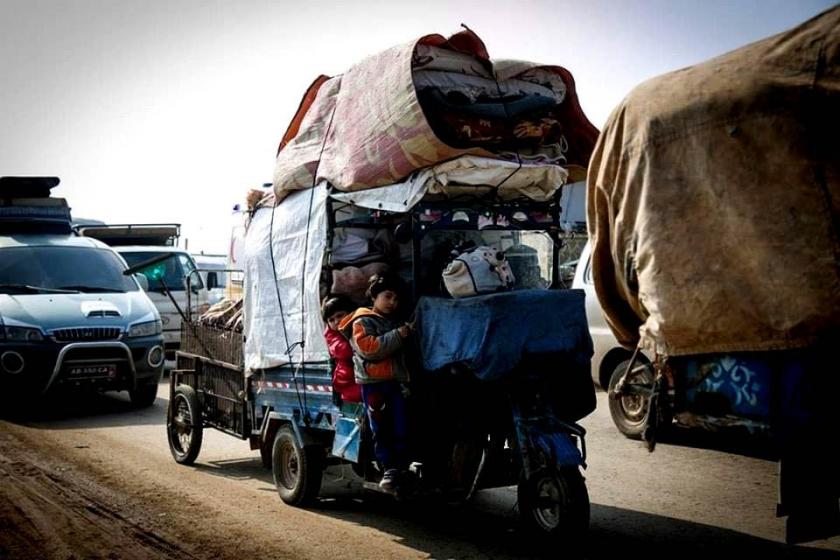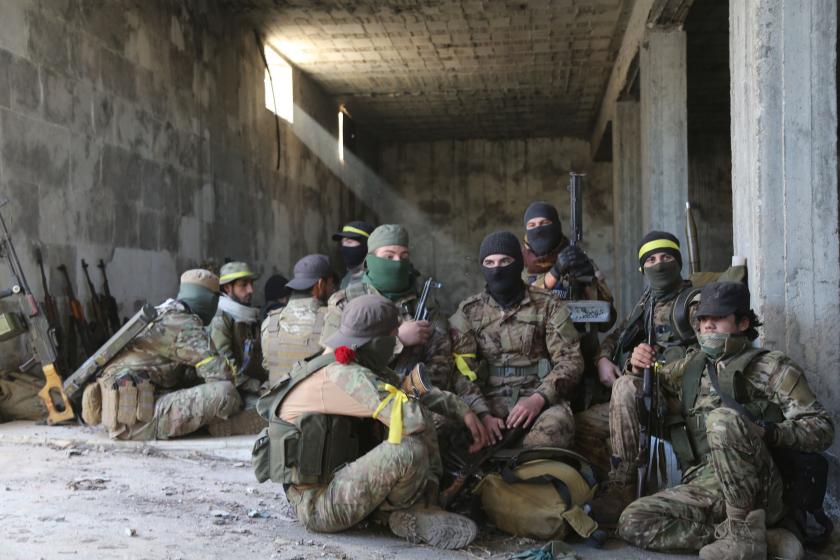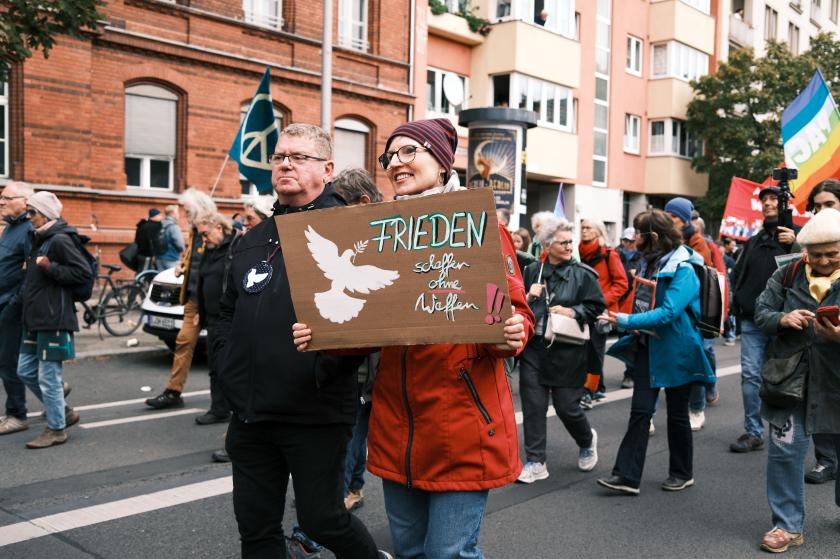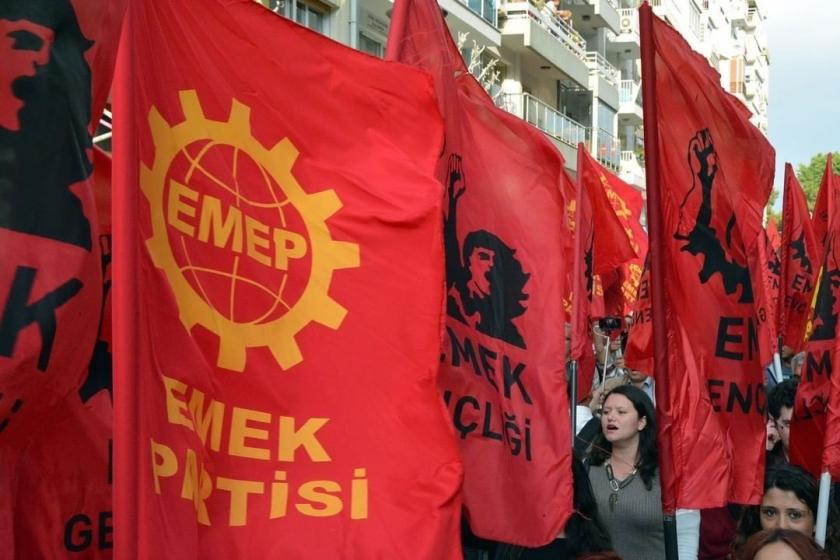Ercüment AKDENİZ
The Confederation of Turkish Trade Unions has published the results of research titled, “Syrian Refugees and Unrecorded Migrants Living in Turkey.” Surveys were conducted with 4,428 Syrians and migrants from other countries. The trade union has turned the research into a pamphlet. I studied it in detail. Here are my notes:
LIE GIVEN TO PERCEPTION “SYRIANS DON’T WORK”
According to the Confederation’s research, 61.2 per cent of migrants work for their living. Those saying, “My spouse or relative works” amounted to 38.1 per cent. 78.5 per cent of adult men and 24.2 per cent of women are in employment. This paints a picture in which all Syrians in Turkey apart from a small minority have become part of the work force. So, the rhetoric with which society is regaled of “Syrians are parasites, they’re lazy and don’t work” is totally false.
THOSE INQUIRING AFTER SATISFACTION DO NOT ASK “ARE YOU INSURED?”
The researchers asked Syrian refugees and other migrants, “Are you satisfied in Turkey?” The percentage of those saying, “I’m satisfied/very satisfied” came to 65.5. A high proportion! But one has to note that this is a question measuring “guests’ satisfaction” rather one being informed by an awareness of rights because Syrians, the vast majority of whom are wage earners and workers, were not asked, “Do you have social insurance?” “Are you unionized?” “Do you have work permits?” “Do you ever go unpaid?” “How much do Turkish national workers get in the workplace, and what do you get? “Do you know about your severance pay, in lieu pay and compensation rights?” etc.
I mean, had the company which conducted this research done so for the bosses rather than a trade union, skipping these questions would have made sense. However, it is patent nonsense for the Confederation of Turkish Trade Unions as a trade union to pass over these questions. The “satisfaction test” of Syrians or other migrants thus failed to yield any objective result.
HAPPINESS ON LESS THAN 2000 LIRA!
Similar afflictions mar the test of satisfaction with the “state” and “local people.” For 87.4 per cent of Syrians and other migrants expressed satisfaction with the state! Satisfaction with the state has increased by four percentage points as against 2016. When the matter turns to “satisfaction with the people,” there has been a three-point decline relative to 2016 and the percentage has fallen to 68.4 per cent.
Who can express their degree of dissatisfaction to the state in a period in which the repatriation process has speeded up, migrants are being squeezed, those unregistered in their own provinces are dispatched to other provinces, families are broken up, concerns over livelihoods and infrastructure problems remain unsolved and migrants have become unable to go out onto the street? Let alone to a totally unknown pollster who knocks at their door. Those who summon a little courage will point to the discrimination they face in civil life. That’s all!
The research data certainly also picks up some noteworthy trends. But the “satisfaction” section of the study is contradictory to the same extent. For example, with the research results speaking of half of Syrians barely getting by and Syrians’ average household expenses averaging 1984 lira, just how happy in economic terms can these people be? Similarly, with the percentage of those taking home a mere 1001-2000 lira per month standing at 41.1 (this means hunger), how can migrants have drunk the elixir of happiness! Let’s push this a bit further: the research results put the percentage of Syrians getting by on 1000 lira or less per month at 21.8. That is, the pits of hunger. Or are these people members of a society that attains happiness on going hungry?
THE TRUTH: SYRIANS CANNOT GO BACK AND THE MAJORITY ARE STAYING
According to the Confederation of Turkish Trade Unions research, 55.8 per cent of Syrians entered Turkey by illicit means. In fact, even if they fled by “illicit means,” they did so legitimately because it was due to war. This percentage also testifies to the meaninglessness of pressurizing migrants with claims of “borders” and “illicitness” in the ninth year.
Surveys that have been conducted speak of 43.1 per cent of Syrians, who envisaged staying two or three months on coming to Turkey, having lived in Turkey for more than six years! What does this mean? The vast majority were tricked and made to believe that the war would end in three months and they would immediately return home. This, at the same time, is a state of disappointment and huge trauma. This is the story of being trapped in Turkey, flawed integration in urbanization terms, morphing into cheap labour and being obliged to take root in foreign climes thinking of one’s children.
The research says that somebody died due to war in one out of every two homes and 76.5 per cent of Syrians came to Turkey for security of life reasons. This data also gives lie to racist rhetoric along the lines of, “Syrians are cowards, they don’t fight or pay the price.” And it is important to note that a significant majority of Syrians find Turkey to be safe as far as security of life goes.
The replies to the question, “When do you think you’ll return to Syria?” were as expected. Because, while the percentage saying, “Very soon” languished at 26.7 per cent, those saying they would go in the “medium term” stood at 29.2 per cent and those not thinking of doing so at 39.7 per cent.
NO INCLINATION TO RETURN TO A SAFE ZONE
When the matter turns to the “creation of safe zones in Syria” mooted by the AKP, the figures in percentage terms become even sharper. Thus, a mere 23.5 per cent say, “I’ll go to a safe zone.” With the undecided trending at 30.6 per cent, those who say they will certainly not go predominate at 44.2 per cent.
It is clear that, as conflict continues in Syria and the time spent living in Turkey increases, the inclination to return to a “safe zone” is declining. The inclination to return is weak among those whose children were born or go to school in Turkey. Those able to speak Turkish do not want to return. In fact, the proportion of those able to speak Turkish has risen from 47.8 per cent to 66.1 per cent. The percentage of Syrians living together with their family has jumped since 2016 to reach 83.5 per cent. Living apart from their family and the wish to return home is more prevalent among other migrants.
DEMAND FOR CITIZENSHIP GROWS AS DOORS CLOSE
The results of the survey point to a weakening inclination of Syrians to go to another country apart from Turkey. The percentage of those saying, “I won’t go to another county” has risen to 60.1 per cent. On reason for this is the harshening of refugee laws and rise of far-right parties most notably in the USA and EU. Another reason is the increasingly deadly nature of refugee routes and the wish of refugees not to spend long years trapped in camps. In short, as the world worsens for refugees, the inclination to cling on in Turkey strengthens. This is a necessity rather than a preference.
A further consequence of remaining trapped in Turkey makes itself felt in the citizenship option. If Syrians are granted citizenship, 43.8 per cent of refugees say, “I’ll accept it.” And this trend has intensified considerably as opposed to past years.
FINDINGS DEFICIENT, NO ORGANIZATION STRATEGY
The company analyzing the data says, “Syrians have integrated but other migrants have not.” The finding is both deficient and wrong because Syrians are still way behind when it comes to rights awareness and demanding rights. Moreover, integration is a two-way issue and there is still great trouble with this issue in Turkey.
Confederation of Turkish Trade Unions General Chair Ergun Atalay says the following in the published pamphlet: “Despite initially appearing to be a short-term or temporary situation, it is evident that Syrian refugees will stay in Turkey for a long time more or a significant portion of them will now lead their lives in Turkey… When we concede that Turkey is no longer just a country of emigration but at the same time one of immigration, it is impossible for the trade union struggle to ignore refugees and irregular migrants.”
There is importance in emphasizing that trade unions cannot ignore Syrians and migrant workers. However, it is odd that no inclusion has been made in the survey results and research report of the exploitation that local and foreign workers suffer in common. There is no trace, either, of the pressure brought to bear on Turkish national workers through the exploitation of migrant workers. Thus, the notions of “brotherhood” or “satisfaction” do not open the door to a class struggle or class brotherhood. On the contrary, they shepherd Syrians into the position of “guests.” Nor is there any discussion of how refugee/migrant workers are to be organized. And, if unions are to speak of a strategy, they need initially to give concrete form to the notion of organization.
Speaking to the press occasioned by the research results, Confederation Chair Atalay said, “It is known on the labour market that virtually the entirety of small and medium-sized enterprises engage in the unrecorded employment of refugee labour.” And this is the very painful nub of the issue. How does the Confederation of Turkish Trade Unions contemplate organizing workers, both local and migrant, to prevent this?
(Translated by Tim DRAYTON)


 Yusuf Karadaş
Yusuf Karadaş
 Yücel Özdemir
Yücel Özdemir

 Ceren Sözeri
Ceren Sözeri